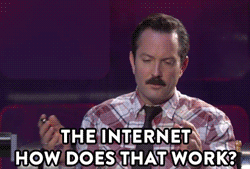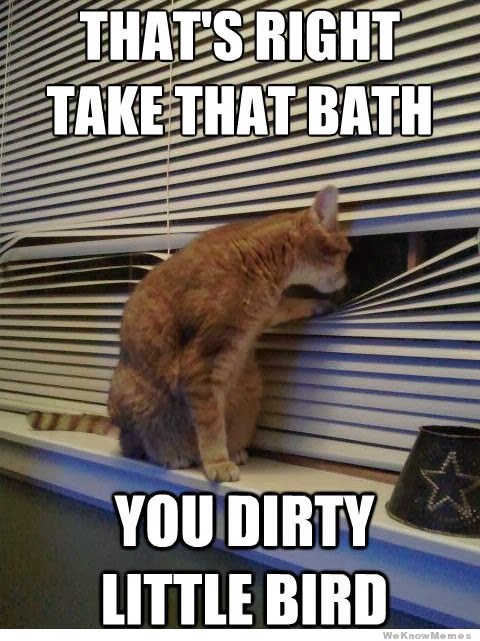Ever have occasion to meet someone whose life strikes you with amazement? I am not talking necessarily about someone having accomplished some singularly amazing feat: the first atop Mount Everest, the inventor of some great marvel, or the vanquishing of some fierce opponent against overwhelming odds. I am referring to someone whose life circumstances cause one to marvel.
Yesterday while doing a media relations tour with
Erie Explosion owner Bill Stafford we went to the
Media One studios in Jamestown, New York.
Marketing and Promotions Consultant Debbi Yoakum was giving us a tour of their facility when she directed out attention to the
WJTN studio.
I have always loved radio. I frequently use this intimate medium to support and draw attention to my online marketing efforts. From my youngest days the evolution of radio from crystal sets to the large radio from which families received news and entertainment until it was supplanted by the television has always fascinated me. I cannot help but feel a sense of history when I see
KDKA's call letters in Pittsburgh. KDKA was the first commercially licensed radio station still in its original location. WJTN lays claim to being the second.
Behind the microphone of
WJTN was seated Jim Roselle. Jim began broadcasting on this station as a part time sports commentator in 1953. As I looked into the window of the studio I saw a vibrant old man, headphones on, speaking into the microphone as his hands gesticulated to an audience unaware of their dance.
 |
| WJTN Radio Icon Jim Roselle Jan. 30, 2014 |
When he went to a song/commercial break Debbi invited us into the studio. Inside, a more affable, welcoming gentleman you could not have found. Almost immediately Mr. Roselle made you feel as though you and he were old friends.
It was as he shared with us that he has been behind the microphone of WJTN for over sixty years that I was filled with a sense of wonder. I began to imagine the stories that must have crossed the desk throughout this storied career. Surely he must have commented on the news of those days - news that is now a part of our common history.
When a young Jim Roselle took the mic in 1953, a young queen was being crowned in England, the United States was bringing the Korean War to a close of sorts, Jonas Salk was giving a trial of his polio vaccine to himself and his own family, Marilyn Monroe was being featured on the very first cover of Playboy, and Chevrolet was launching a new sports car called the
"Corvette".
Jim Roselle, known for learning about his interviewees before their arrival so that he could do his trademark conversational style interviews, has sat with such diverse public figures as Rocky Marciano, Joyce Carol-Oates, Richard Simmons, Bill and Hillary Clinton, Phil Donahue, Jane Goodall, and the late media elder Tim Russert.
Mid sentence Jim instinctively realized his song had ended and his eighty seven year old finger deftly tapped a computer touch screen to launch a commercial. How different this must be from his first day in 1953! I realized that this man has no board operator. He commands not only the microphone but the production of his morning show with the ease of someone who has spent sixty years doing what he loves. As a broadcaster Jim interviewed Lucille Ball, now he serves on the board of
The Lucille Ball Little Theatre. His career launched as the British Royals launched their yacht the
Britannia, and he was behind the same microphone when this same royal yacht was retired by a queen no longer so young.
His devotion to his audience limited our time with this radio legend. He had played two songs and some commercials to facilitate our visit, but his "
Dew Drop Inn" radio show was primarily a conversation, and his listeners were waiting to hear from their friend and constant morning companion.
 |
| Radio legend Jim Roselle meets with Erie Explosion owner Bill Stafford of Edinboro. |
As the door to the studio closed, framed by pictures of a smiling Jim Roselle with Bill and Hillary Clinton, I was awash in wonder. I had just shook hands with a man who was broadcasting when Glenn first orbited the earth and when man first stepped on the moon. He was a broadcaster at the time of the Challenger disaster, at both the initial launch and the loss of Columbia, and this same consoling voice would have been on the air when it was time to eulogize Neil Armstrong. His career began the year the
British queen was crowned, and he remains on the air as she slowly transitions her royal duties to Prince Charles.
As we were preparing to leave the beautiful,
modern studios of Media One in Jamestown, a gentleman walked in with a yellowed old newspaper. "I found some more old headlines for Jim," he told the receptionist as he made his way to the WJTN studio.
We had come to the studios this day to discuss ways to share the story of the success of the
CIFL Champion Erie Explosion. Neither Bill nor I thought that we would have the pleasure of encountering a vessel of history sharing a conversation with a faithful audience --a conversation about the news of today and yesterday shared within the warm environs of the
Dew Drop Inn, all served up in "a cup of happiness."
Jeff Novak
Engagement Consulting LLC
Sources:
http://www.radiojamestown.com/pages/wjtn-jim-roselle-pages
http://en.wikipedia.org/wiki/WJTN
http://www.wjtn.com/














